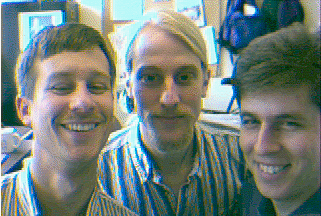The XII Planner
Classical planners presuppose correct and
complete information about the world. Although recent work has
sketched a number of algorithms for planning with incomplete
information,
substantial problems remain before these planners can be applied to
real-world domains. Since the presence of incomplete information
invalidates the Closed World Assumption, an agent cannot deduce that a
fact is false based on its absence from the agent's world model. This
leads to two challenges:
- Satisfying Universally Quantified Goals: Goals of the form
``Move all widgets to the warehouse'' or ``Make all files in /tex
write protected'' are common in real world domains. Classical
planners such as PRODIGY or UCPOP
satisfy universally quantified goals by computing the set of ground
instances of the goal. But how can a planner compute this set in the
absence of complete information? Sometimes it may have to sense
which widgets or which files are present before
generating its plan.
- Avoiding Redundant Sensing: Should the planner insert a sensory
action (e.g., scan with the camera, or the UNIX command ls) into its
plan? Or is the action redundant, yielding information already
known to the planner? Since satisfying the preconditions of a sensory
action can require arbitrary planning, the cost of redundant sensing is
potentially unbounded and quite large in practice.
This paper reports on the fully-implemented XII planner (XII stands
for ``eXecution and Incomplete Information'') which addresses these
challenges. We allow incomplete information, but assume the
information that is known is correct. XII's planning algorithm
is based on UCPOP, but XII interleaves planning and execution
(following IPEM) and, unlike UCPOP, does not make the closed world
assumption. XII uses closed world reasoning to avoid redundant
information gathering and to solve universally quantified goals in the
presence of incomplete information.
 The folks behind XII:
Dan Weld,
Keith Golden,
Oren Etzioni.
The folks behind XII:
Dan Weld,
Keith Golden,
Oren Etzioni.
A short
paper (to appear at AAAI-94) describing XII, (also available in
html) and a
a more
theoretical paper (to appear at KR'94) describing local
closed world information, a key contribution of this work.
 The folks behind XII:
Dan Weld,
Keith Golden,
Oren Etzioni.
The folks behind XII:
Dan Weld,
Keith Golden,
Oren Etzioni.
 The folks behind XII:
Dan Weld,
Keith Golden,
Oren Etzioni.
The folks behind XII:
Dan Weld,
Keith Golden,
Oren Etzioni.